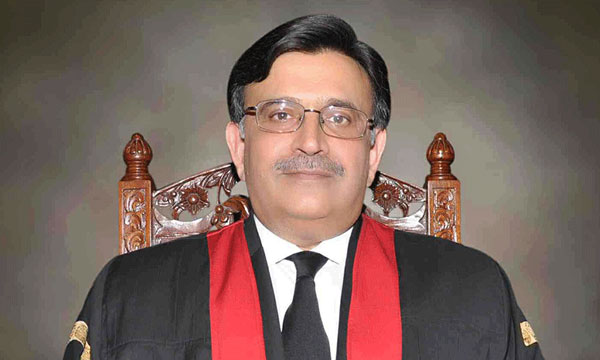Says SC judges deemed it ‘constitutional matter’; Article 63-A essential for parliamentary democracy
Chief Justice of Pakistan (CJP) Umar Ata Bandial said on Monday that the Supreme Court had taken suo motu notice of the parliamentary crisis last month after consultations were held between 12 SC judges, all of whom agreed that it was a “constitutional matter”.
On April 3, following then National Assembly deputy speaker Qasim Suri’s dismissal of a no-confidence motion against then prime minister Imran Khan and the subsequent dissolution of the National Assembly, Justice Bandial had taken suo motu notice of the matter. He had also made it clear that all orders and actions initiated by the prime minister and president regarding the dissolution of the National Assembly will be subject to the court’s order, which had eventually gone against the then government and restored the assembly.
The Supreme Court’s notice was criticised by the PTI lawmakers, with Fawad Chaudhry branding it “unfortunate”.
The chief justice, however, maintained today that the notice was justified. “Everyone believed that it was a constitutional matter so notice should be taken.”
Justice Bandial made the remarks during the hearing of a presidential reference seeking the top court’s opinion on Article 63-A of the Constitution, which is related to the disqualification of lawmakers over defection.
A five-member bench, headed by the chief justice, and comprising Justice Ijazul Ahsan, Justice Mazhar Alam Khan Miankhel, Justice Munib Akhtar and Justice Jamal Khan Mandokhail, is hearing the reference.
He further remarked that suo motu notice was taken at the bench’s discretion and not on anyone’s wishes.
At the start of the hearing, the chief justice remarked that it was the court’s duty to protect the Constitution, adding that the interpretation of Article 63-A was essential for parliamentary democracy.










